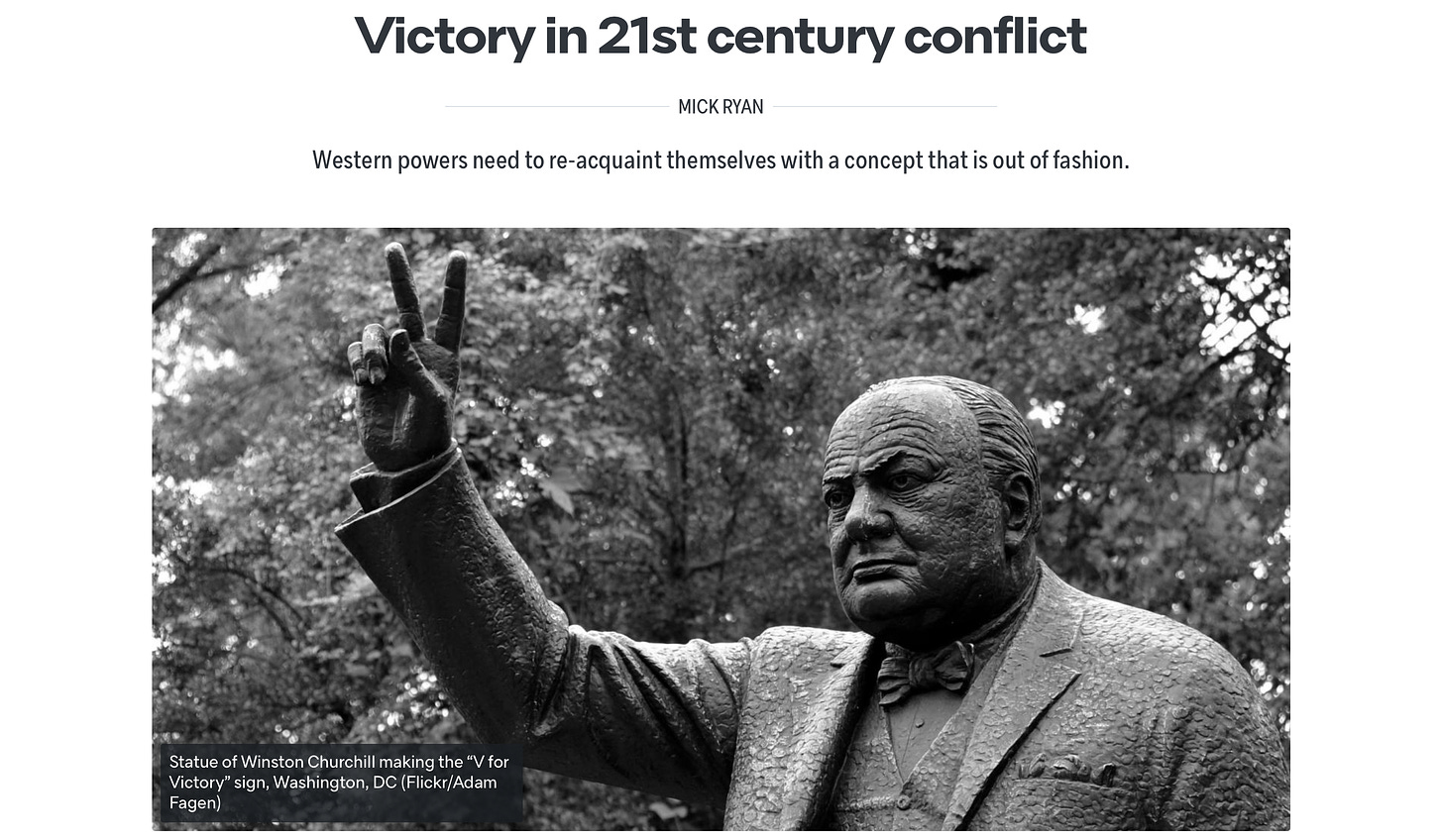Recently, I have been reviewing the concept of victory and application in 21st century conflict. In my new book, The War for Ukraine: Strategy and Adaptation Under Fire, I spend an entire chapter looking at the concept of victory, its modern manifestation and what victory might look like for Ukraine.
The recent Victory Plan launched by Ukraine’s President Zelenskyy has seen the term again be considered in the context of modern, high-technology and large-scale wars. In this new piece for the Lowy Institute, I examine the concept of victory, how modern authoritarian rulers use the term, and what it might mean for Western leaders and military planners.
Over the past few weeks, Ukrainian President Volodymyr Zelenskyy has travelled through Europe and America to brief political leaders on his Victory Plan, designed to end the war on acceptable terms for Ukraine. Zelenskyy has also given speeches to the European Council and, on 16 October, his own parliament.
Zelenskyy made the following critical point about his plan: “we must implement the Victory Plan to force Russia to attend the Peace Summit and be willing to end the war.” The Victory Plan is thus a means to an end. Zelenskyy and his advisors understand that even if a military victory is achieved, it is politics that will determine the outcome of this war. For Ukraine, the desired outcome of the Victory Plan is forcing Russia to the table for negotiations to achieve Zelenskyy’s Peace Formula.
President Zelenskyy recently noted that “for some, ‘victory’ has become an uncomfortable word.”
Thus, victory in war in about more than military success. In The Evolution of Strategy, Beatrice Heuser proposes that military victory may not result in the lasting achievement of war aims, and that “the most important aim in any war must be to make a just and durable peace. Victory is nothing if it does not lead to such a peace.”
Victory in modern war is about winning the peace as well as winning the war. The initial American military successes in Iraq in 1991 and 2003, and in Afghanistan in 2001, followed by subsequent long-term instability, testify that military successes do not always ensure a favourable and enduring political solution. Russian interventions in Afghanistan and its first war in Chechnya are further examples.
The concept of victory, or the word itself, is one Western politicians and academics like to avoid. In 2009, US President Barack Obama said he was “always worried about using the word ‘victory,’ because, you know, it invokes this notion of Emperor Hirohito coming down and signing a surrender to MacArthur.” As Heuser has written: “for most Western liberals in the early 21st century, victory seems of little value as a thing in itself, as the price at which it might come seems disproportionate to the gains.”
While perhaps a loaded term for contemporary Western politicians and academics, the leaders of authoritarian powers are familiar with it.
Military successes do not always ensure a favourable and enduring political solution.
In his 2021 speech on the 100th anniversary of the founding of the Communist Party, President Xi Jinping noted that “the victory of the new-democratic revolution put an end to China's history as a semi-colonial, semi-feudal society.” The concept of victory is also referred to in the Chinese Communist Party’s White Paper on Taiwan published in 2022, as well as in the speeches by Xi at the 19th and 20th National Congresses of the Chinese Communist Party. Russian President Vladimir Putin has highlighted Russia’s historical victories to inspire national unity and pride. Putin used the term to describe the annexation of Crimea in 2014, as well as in the most recent war against Ukraine.
Victory is also a relevant concept for Australian national security practitioners.
You can read the full article (for free) at the Lowy Interpreter here.





"Victory" - a loaded word but, really, it shouldn't be when the opposite of "victory" is "defeat" and pretty much no one would be a proponent of attempting to achieve defeat.
The problem, I submit, is that in our current western world the concept of "victory" is (wrongly) equated to imposing our will on the "vanquished" and, well, we just cannot impose our will; we must "persuade" our opponent of the error of their ways. Of course, that is absurd but that sort of thought process reflects the thought process of many western citizens today.